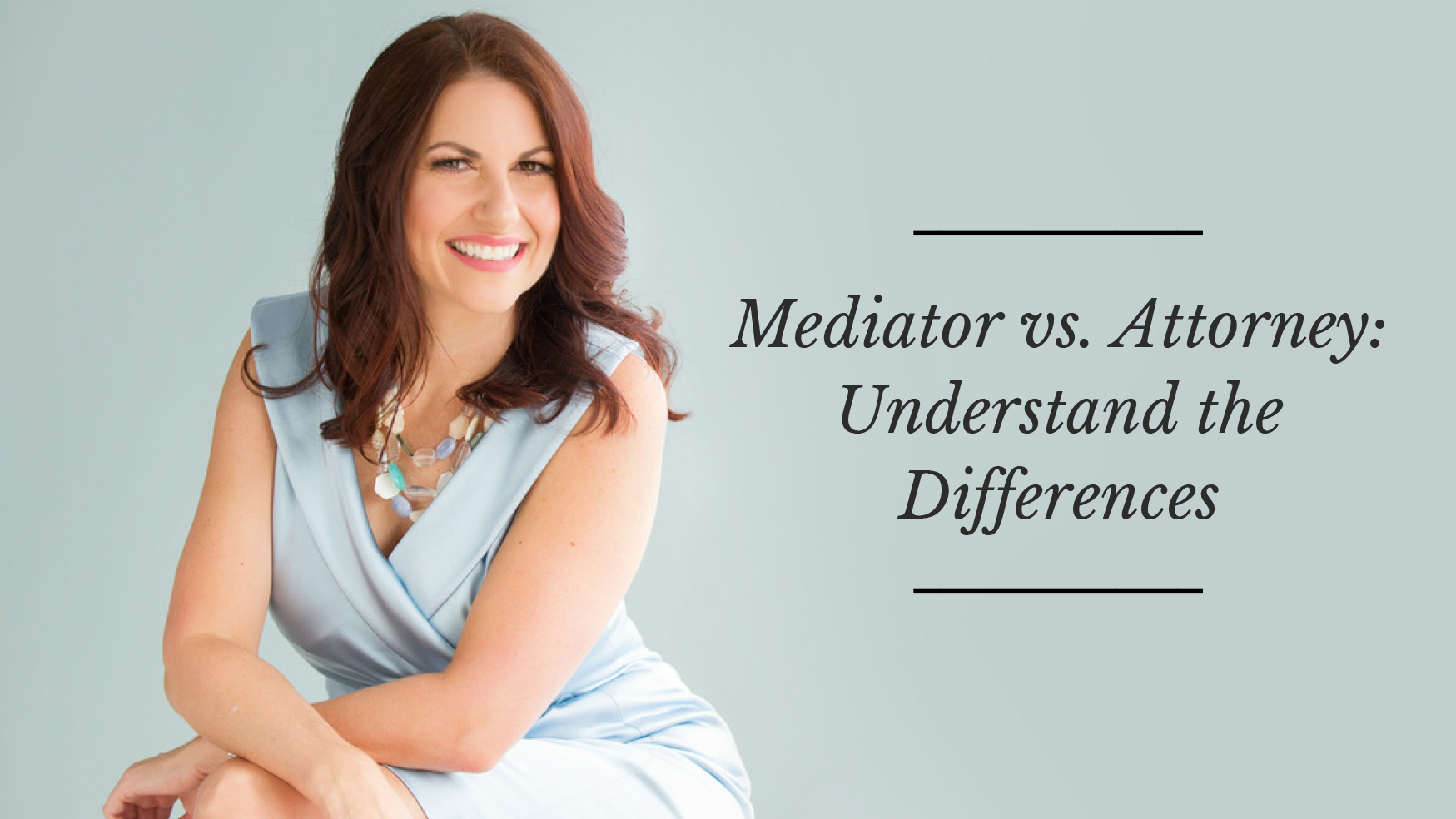Mediator vs. Attorney: Understand the Differences
Many people think that making the initial decision to get a divorce is the hardest part of the whole process. While it is a challenging call to make, the later choices you’ll have to make can be especially difficult when you don’t fully understand what you’re getting into.
At this time Natalie is offering mediation services only
Divorce lawyers and divorce mediators are two entirely different roles; they each have different goals and methods in getting there.
With a bit of education, you’ll be able to hone in on what your divorce needs and make the right decision for the whole family.
A Lawyer’s Role
A traditional divorce lawyer’s role is to advocate for the one spouse they were hired to represent. Their ultimate goal is to get the most favorable outcome for their client, not the couple as a whole. They can only represent one of the two parties.
A Mediator’s Role
On the other hand, the mediator’s role is to serve as a neutral and independent third party to help those involved in a dispute reach an agreement. They serve both parties and negotiate to come to mutually acceptable arrangements. While they will actively participate in discussion and negotiation, they are not in control of making the decisions.
Is a Mediator a Lawyer?
While a mediator can be a lawyer and a lawyer can be a mediator, they are not the same thing. The field of mediation is unregulated, so attorneys and non-attorneys alike can all participate. Often, retired judges, financial professionals, and even mental health professionals can be mediators.
While a mediator should have a good grasp of local laws and understand how they work, they need to offer much more than that. They should be fully neutral. They should know the issues at hand. They should have expertise in solving complex financial issues around the divorce process.
While it’s not necessary for mediators to be certified, it’s helpful to find one with glowing reviews or recommendations. Our very own Natalie Baird, for example, is a Supreme Court Certified Family Law Mediator.
The Big Differences
To make it crystal clear, these are the big differences between a divorce attorney and a mediator:
- Divorce mediation only requires 1 mediator, while divorce calls for 2 lawyers
- A lawyer only represents one party, while a mediator serves as a neutral third party
- Lawyers give legal advice, mediators cannot give legal advice and help the parties make their own decisions
- A litigation can take anywhere from 18 months to 3 years to complete while a successful mediated divorce can take from 2 to 6 months
- A lawyer-driven divorce is an adversarial process while mediation is a cooperative process
- Litigation is public record, while mediation is confidential
If you want to reach an agreeable settlement with your spouse and get through your divorce in an amicable way divorce mediation might be for you. Find out more about this process by reaching out to our experts at Natalie Baird Mediation & Collaborative Divorce.

